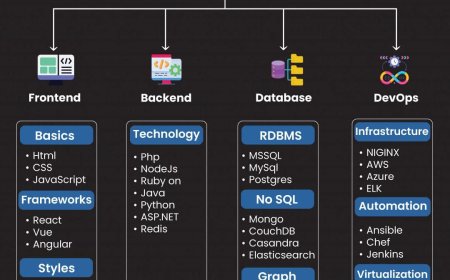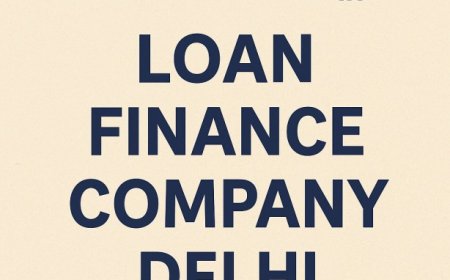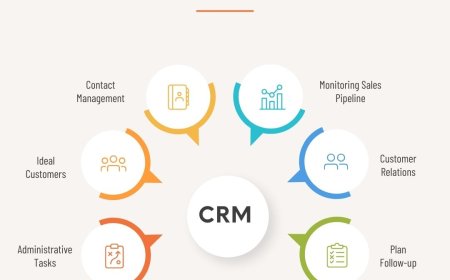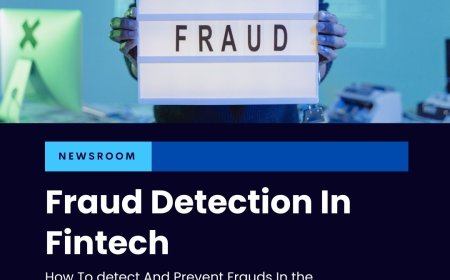Top Smart Contract Auditing Services to Secure Your Blockchain Project in 2025

In 2025, as the blockchain space matures and adoption accelerates across industries, one area remains a non-negotiable pillar of trustsmart contract auditing. With billions of dollars transacting through smart contracts on platforms like Ethereum, Solana, BNB Chain, and Arbitrum, ensuring these contracts are secure, bug-free, and free of logic flaws is vital. This is where professional smart contract auditing services come into play.
A single vulnerability in a smart contract can result in catastrophic financial and reputational damage. For developers, startups, enterprises, and DAOs, investing in the right auditing firm isnt just a best practiceits a survival tactic. In this blog, well explore what smart contract auditing is, why its essential, and the top auditing services available in 2025 to keep your blockchain project secure.
What Is Smart Contract Auditing?
Smart contract auditing is the process of thoroughly reviewing the code of a blockchain-based smart contract to identify vulnerabilities, logic errors, and inefficiencies. Audits can be performed manually by expert security researchers or augmented by automated tools. The ultimate goal is to ensure that the smart contract performs exactly as intended without exposing users or funds to malicious exploits or unforeseen bugs.
Audits typically assess:
-
Business logic flaws
-
Reentrancy vulnerabilities
-
Integer overflows/underflows
-
Access control misconfigurations
-
Front-running or sandwich attack vectors
-
Compliance with security best practices
-
Gas optimization opportunities
In most cases, projects receive a detailed report outlining vulnerabilities, risk severity, and remediation recommendations. A final audit certificate or public report often follows once all issues are resolved.
Why Smart Contract Auditing Is Critical in 2025
The DeFi, NFT, and GameFi ecosystems have exploded in popularity, and with them, the volume of smart contracts handling real economic value. In 2024 alone, over $1.2 billion was lost to smart contract hacks. As composability and complexity increase in decentralized applications, so does the attack surface.
In 2025, the need for audit-ready, secure smart contracts is no longer optional for:
-
DeFi protocols managing user liquidity
-
NFT platforms minting and transferring unique digital assets
-
DAOs executing on-chain governance mechanisms
-
Real-world asset tokenization systems
-
Enterprise blockchain integrations handling sensitive data
Smart contract audits act as a proactive defense layer, ensuring your protocol is secure before it goes live and starts handling funds.
What Makes a Good Smart Contract Auditing Service?
Not all auditing services are created equal. The best audit firms combine deep technical expertise, a proven track record, and formal verification methodologies. Heres what to look for when selecting a smart contract auditing partner in 2025:
-
Experience and reputation: Check the firms audit portfolio, client feedback, and presence in industry forums.
-
Security researchers: The depth of individual auditors and their familiarity with emerging attack vectors.
-
Manual and automated testing: Top firms use both techniques to ensure full coverage.
-
Comprehensive reporting: Clear issue categorization, severity levels, and remediation advice.
-
Post-audit support: Collaboration during the bug-fixing phase, retesting, and final audit certification.
Top Smart Contract Auditing Services to Consider in 2025
Here are the leading smart contract auditing companies in 2025, known for securing high-profile blockchain projects and delivering robust security assurances.
1. Trail of Bits
Trail of Bits remains one of the most respected security firms in the blockchain space. Known for deep formal verification, mathematical rigor, and contributions to open-source tooling, their audits are trusted by Fortune 500s, Layer 1s, and DeFi giants alike.
Strengths:
-
Formal verification of complex logic
-
Audits for Ethereum, Solana, and Layer 2s
-
Experts in compiler-level vulnerabilities
Notable Clients: OpenSea, Balancer, Ethereum Foundation
2. OpenZeppelin
Best known for maintaining the industry-standard OpenZeppelin smart contract libraries, this firm offers auditing as a premium service. Their expertise is unmatched in ERC standards and protocol architecture.
Strengths:
-
Solidity specialists with DeFi and DAO expertise
-
Real-time integration with Defender (their monitoring platform)
-
High transparency with public audit reports
Notable Clients: Compound, Aave, StarkWare
3. CertiK
CertiK blends manual audits with automated analysis powered by its proprietary AI-based engine, Skynet. It offers a dashboard-style audit with security scores, real-time monitoring, and on-chain analytics.
Strengths:
-
Ideal for NFT, GameFi, and consumer-facing protocols
-
Post-deployment monitoring through Skynet
-
KYC and bug bounty management
Notable Clients: PancakeSwap, Shiba Inu, Polygon projects
4. Halborn
Halborn offers high-touch auditing and penetration testing services with strong specialization in multi-chain DeFi protocols. Their holistic approach covers not only smart contracts but also backend infrastructure and frontend vulnerabilities.
Strengths:
-
Comprehensive security reviews beyond smart contracts
-
Ethical hacking and adversarial simulation
-
Excellent support during security incidents
Notable Clients: SushiSwap, Solana, Avalanche
5. Quantstamp
Quantstamp offers scalable smart contract audits for Layer 1 and Layer 2 ecosystems, with a particular focus on enterprise-grade audits. Their global team includes cryptography PhDs and blockchain security veterans.
Strengths:
-
Enterprise-friendly reporting and compliance focus
-
Audits across Ethereum, Solana, BNB Chain, and more
-
Active in the RWA tokenization space
Notable Clients: Chainlink, MakerDAO, Toyota
6. Consensys Diligence
As part of Consensys, this audit team has direct ties to the Ethereum ecosystem. Known for its MythX tool and deep Solidity expertise, Diligence is ideal for early-stage and production-ready DeFi protocols.
Strengths:
-
Integration with developer tooling (Truffle, Infura)
-
Formal verification and static analysis
-
Strong support for public audits
Notable Clients: Uniswap, MetaMask, Gnosis
7. Code4rena
Code4rena is a community-driven audit platform using a competitive model. Whitehat auditors compete to find bugs in a given codebase, offering speed, diversity of thought, and cost-effective coverage.
Strengths:
-
Rapid turnaround with crowd-sourced audit talent
-
Gamified model for incentivized bug discovery
-
Public leaderboard and transparent scoring
Notable Clients: Arbitrum, Lido, OlympusDAO
What to Expect During the Audit Process
Once you engage with an auditing service, the process typically includes the following stages:
-
Pre-audit preparation: You submit technical documentation, the codebase, and deployment plans.
-
Audit kickoff: The auditing firm assigns a team of researchers who begin reviewing the smart contracts.
-
Automated analysis: Static and dynamic tools are run to identify common vulnerabilities.
-
Manual review: Expert researchers manually review logic, permissions, and architectural assumptions.
-
Initial report: Findings are shared with the project team for remediation.
-
Remediation support: Collaboration occurs to resolve issues, followed by retesting.
-
Final report and certification: Once the contract passes the audit, a public or private report is issued.
The average audit can take between 1 to 4 weeks depending on code complexity and the firms workload.
How Much Do Smart Contract Audits Cost in 2025?
Audit costs vary significantly based on contract complexity, audit firm reputation, and speed of delivery. Heres a general benchmark for 2025:
-
Simple contracts (ERC-20, basic NFTs): $5,000 $15,000
-
Moderately complex contracts (DeFi lending, staking): $20,000 $50,000
-
Highly complex protocols (cross-chain, Layer 2, AMMs): $60,000 $150,000+
Firms like Code4rena or Sherlock may offer competitive pricing via contest-based models, while premium firms like Trail of Bits command higher fees for formal verification.
Final Thoughts: Secure Your Protocol Before It's Too Late
The era of deploy first, audit later is over. In 2025, an unaudited smart contract is a glaring red flag to investors, users, and partners. Whether you're launching a token, managing user assets, or deploying a DAO governance model, smart contract security is foundational.
Choosing a reliable smart contract auditing service ensures your protocol can stand up to real-world usage, malicious attackers, and time. Auditing is not a costit's an investment in your protocol's longevity, credibility, and success.
























